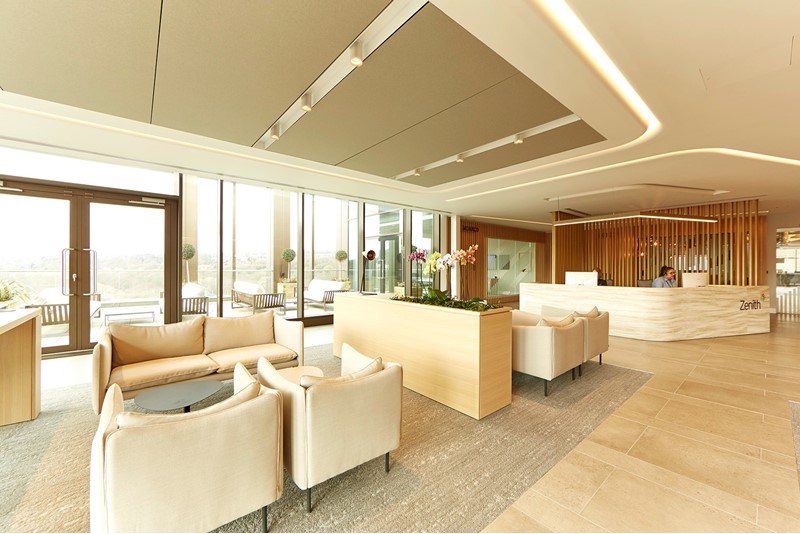Rapid growth, new products and services, acquisitions and a new HQ have transformed Zenith. But’s it’s not all plain sailing, reports Stephen Briers
A decade ago, Zenith was a 17,500-unit car and van leasing company. Today, from a new HQ, it offers products for the entire vehicle parc, with a fleet of 125,000.
Such rapid growth is rare without teething pains. And so it is that, for the first time in its 29 years, Zenith is facing a few rumblings of discontent from customers.
The company, which has won several Fleet News Awards in recent years, including best customer service, is enduring the growing pains of a business that has made high profile acquisitions (Leasedrive, Contract Vehicle Holdings), secured sizeable business wins, moved head office, quadrupled its workforce and switched investment partner four times – all within the past 10 years.
However, those murmurings look unlikely to result in imminent business losses. Years of outstanding customer service, testament to a proud history of understanding, serving and exceeding clients’ expectations, has built the goodwill and breathing space for Zenith to resolve fleets’ concerns.
The process started with a move to an impressive 60,000sq ft office on the outskirts of Leeds. It provided the trigger for a freshly motivated and incentivised workforce and a renewed focus on skills training.
The new HQ, which opened at the end of last year complete with train station, will, says Zenith chief executive Tim Buchan, “underpin the next stage of our business”.

It has parking for less than a quarter of the 540 employees, instead prioritising space for car share and car clubs. More than 100 staff travel in on the train, with a similar number registered on the car share scheme. Others cycle, knowing they can shower on arrival.
Inside, staff have work ‘settings’ rather than dedicated spaces, freeing them to move around the office and plug into any of the computers on their team’s floor.
Each of the four floors is identical in design, with ‘pit-stop’ kitchen areas and lockers to clear everything away at the end of the day, multiple breakout and huddle areas, plus plant-lined balconies for open-air meetings.
Meanwhile, a ‘Zen Room’ offers staff a place to go to chill out or even sleep, with no devices allowed.
If all that sounds a bit new age and pious (Zenith employed the same interior designer as the BBC’s Salford office), there is a clear business purpose and relevance for fleets.
Zenith competes with the big four accountancy firms for the best staff, typically millennials. The best staff equals the best service.
“Everything starts with the new HQ; it’s designed to get the best workforce, which is about delivering services not asset finance,” says Buchan. “Two-thirds of our work is managing the people in the asset; one-third is managing the actual asset, and everything is more routine.”
He adds: “We have links with Manchester where there is a digital economy for web developers, Leeds for the finance industry, York for insurance, and Sheffield and Huddersfield as the industrial and engineering heartlands. We need a diverse employee population.”
The move has had an immediate impact, according to Zenith managing director Ian Hughes: “We have seen a big increase in staff engagement and productivity.”
Zenith now consists of two divisions: specialist (van and truck), which accounts for 35,000 assets, and the traditional business (cars and car-derived vans) with 90,000.
The combined fleet of 125,000 sits within a core customer base of around 250 fleets, each operating a minimum of 75 vehicles (slightly smaller for the truck business). Not all are funded by Zenith.
“We are agnostic as to whether we fund or fleet manage – we’re here to provide an outsourced solution for the end customer,” says Buchan.

He is also increasingly agnostic as to whether a customer is corporate or consumer, having identified a few years ago the first shoots of a “seismic shift” from PCP (personal contract purchase) to PCH (personal contract hire).
“A decade ago, we were a leasing company but that’s not the right description now. We have changed out of all recognition from being company car-focused to being multi-asset management – trucks, cars, vans, rental and salary sacrifice,” Buchan says.
“The core of our business is corporate, but we are running towards consumer.”
He points to a market of some 900,000 PCP/PCH customers, “it’s so significant that we have to focus on it”.
Entering the consumer market is not such a big cultural leap for a company that already sees the company car driver as a consumer, particularly when they have the option of cash, company car, salary sacrifice and affinity schemes.
However, there are significant differences when it comes to the technology requirements for quoting, with platforms having to reflect the way customers choose their cars.
“Also, customers want to deal with you six or seven days per week, not five days,” Buchan says. “We have to adapt to reflect that.”
A new business ethos was emerging even before the acquisition of Contract Vehicle Holdings (CVL) last year, as van operators started to demand a different relationship.
“They had been very car-like but now, with downtime management, the demands from them required us to change our business,” Buchan explains.
“CVL is helping us to learn how to manage downtime and utilisation. We have integrated it within our business and we are starting to sell cars and vans to trucks customers and vice versa. Cross-selling is going well and allowing us to expand our relationship with customers.”
It isn’t all plain sailing. Zenith has seen a number of large corporates reduce fleet sizes as they restructure their businesses ahead of Brexit. Then there’s the uncertainty caused by diesel and the focus on air quality and clean air zones.
It’s yet more reasons for the company to look beyond fleet into the consumer market, and beyond cars into trucks.
Buchan highlights the opportunities of 37 million vehicles on the road; Zenith, he says, now has products to serve all of them.

ZenAuto: ‘the future of car retailing’
Zenith launched ZenAuto in March to offer personal car leasing to individuals. The business goes direct to consumers, not via brokers.
It went live with 9,000 vehicles – “we were pleasantly surprised by the level of manufacturer support and stock,” Tim Buchan says – and can quote on any vehicle and options with contracts up to four years.
Finance is personal contract leasing (PCH), either with or without maintenance, with Zenith owning the asset. It expects the consumer market, currently 80% PCP and 20% PCH, to flip in favour of PCH within the next 10 years as millennials, with no equity, drive a new subscription economy.
Deals are updated daily, with stock including both special offers and cars that can be built/specified by the individual. Buyers can order online, go through credit checks and then be emailed a document to be signed and returned. If necessary, they can talk to an operator, including at evenings and weekends.
Insurance might be added in the future.
“We are offering a company car for the retail market,” Buchan says. “This is the future of car retailing.”
He anticipates growing the inventory, which will open up an opportunity to create a used car hire product. This would also enable Zenith to push harder into the electric vehicle market.
“We see there being three operators of an electric vehicle during its life,” Buchan says. “(With a used car product) we become someone that can run an asset for its entire lifetime.”
Zenith is forecasting selling 30,000-40,000 vehicles via ZenAuto over the next three or four years.























Mike Lauriello - 13/07/2018 01:34
A very frank and honest interview, should the majority of these aspersions be achieved, the should be considered as true market leaders with world class thinking! Dare to dream